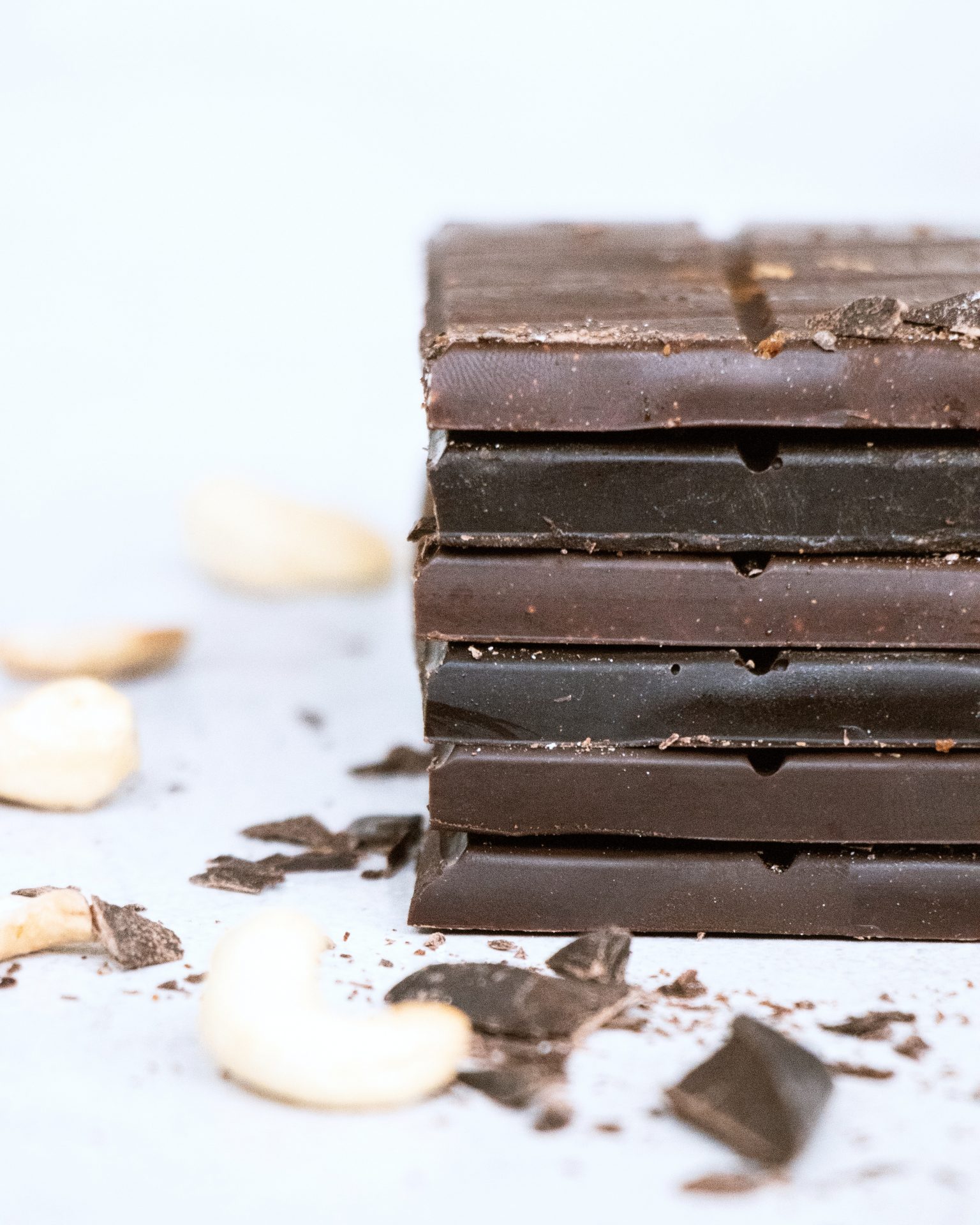All the reasons why eating dark chocolate can improve your fitness, explained by nutritionists.
There’s seldom that compares to a square of rich dark chocolate. Whether you go for a gentle 60% for an after dinner sweet kick or enjoy the bitter taste of a higher percentage, dark chocolate is a comforting treat for people who are in the mood for bolder flavours than that of milk or white chocolate.
It’s not just the taste of dark chocolate that stands out. Unlike a bar of Dairy Milk, you’ll often hear people talking about the huge health benefits associated with eating a chocolate bar of a higher percentage chocolate. From sleep to exercise, there’s regularly chat about why dark chocolate is, in fact, so good for you.
You may also like
Chocolate recipe: show yourself some love with these heart-healthy chilli truffles
But how true are those claims, and is it something you should be eating every day? To find out how dark chocolate can help you and your fitness, we asked two expert nutritionists.
Is dark chocolate good for you?
Most of the goodness in your dark chocolate bar can be traced back to one ingredient – cocoa. This is the reason that dark chocolate has a much better rep than other types of chocolate, according to nutritionist Jenna Hope.
“Dark chocolate is higher in cocoa, which is the carrier for many of the benefits. The higher the cocoa content, the lower the sugar content, too. Dark chocolate typically ranges from 70% to 99% (in some cases even 100%!), so the higher the percentage, typically the lower the sugar and the more cocoa present in the chocolate,” says Jenna.
So, the real question we should be asking is: what are the benefits of cocoa? “Flavanols, a plant nutrient with heart-protective benefits, are found in many foods but are abundant in raw cacao,” explains plant-based dietician and nutritionist Rohini Bajekal.

These flavanols are known for their antioxidant properties “which means they limit free radicals in the body. Free radicals are a natural by-product of digestion, exercise and exposure to pollutants, but they contribute to cell damage,” explains Jenna. “Dark chocolate has also been associated with improved vascular function, reducing blood pressure and supporting heart health due to its polyphenol and theobromine content,” Jenna adds.
Sleep experts also herald dark chocolate for it’s ability to help with sleep. Keris Marsden, nutritional therapist, previously told Stylist that “chocolate increases serotonin – serotonin helps you fall asleep at night,” and psychologist Hope Bastine eats dark chocolate as a source of tryptophan, an amino acid that regulates sleep.
How does dark chocolate help exercise?
A 2016 study by Kingston University found that 40g of dark chocolate a day improved athletic endurance of participants – that is how long they could effectively exercise for. The researchers suggested this is because of a type of flavanol in cacao called epicatechin that has been shown to increase nitric oxide production in the body.
“Cocoa is also rich in magnesium which, among it’s 600+ roles, plays a key role in muscle and nerve relaxation and energy production, and cocoa provides some calcium and iron too which are important for supporting bone health and transporting oxygen around the body,” adds Jenna.
There is also some evidence to suggest that dark chocolate may help to support mitochondrial function and reduce oxidative stress and inflammation caused by exercise. “Mitochondria produce ATP (the body’s usable form of energy) and therefore dark chocolate may aid energy production,” explains Jenna. “Although, the evidence is mixed and more research is needed before we can conclusively suggest that dark chocolate may aid exercise performance and recovery.”
You may also like
The best sources of magnesium to help support regular exercise
When should you eat dark chocolate?
Although dark chocolate is fine for most people any time of day, it does contain a small amount of caffeine so may be best avoided by those who “are sensitive to the effects of caffeine or are prone to stress and anxiety,” says Jenna.
“Otherwise, I recommend having dark chocolate throughout the afternoon. Between 20-30g is an ample portion size, as dark chocolate is more bitter than milk and white chocolate.”
Follow @StrongWomenUK on Instagram for the latest workouts, delicious recipes and motivation from your favourite fitness experts.
Images: Getty
Source: Read Full Article
